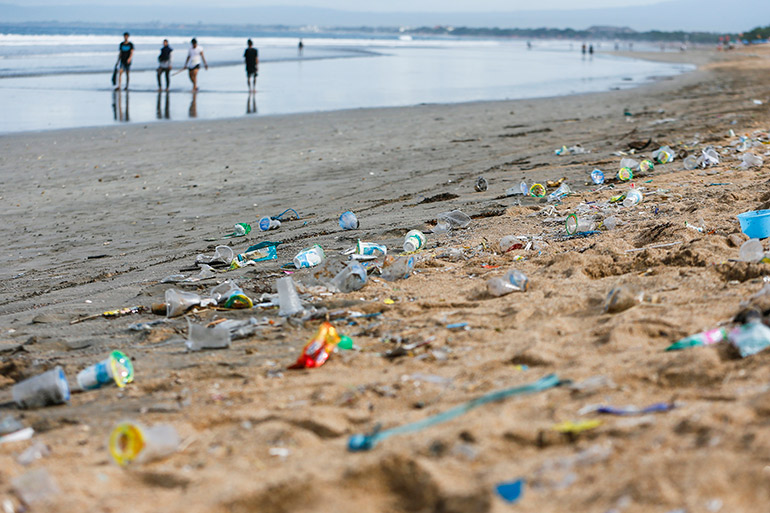Indonesia’s plastic bag tax, meant to curtail the roughly 187 million tonnes of plastic waste entering the country’s water every year, is not enough to fix Indonesia’s environmental crisis, according to experts

A plastic bag tax in Indonesia has been received well by both experts and the public, but as the world’s second-largest source of plastic ocean waste, industry insiders say the country must do more if it is to clean up its worsening environmental record.
Last October, the Indonesian government announced it would introduce a policy requiring modern retailers to charge customers for plastic bags.
The policy was introduced February of this year and trialled across 23 Indonesian cities, with selected retailers implementing the 200 rupiah ($0.015) charge on a voluntary basis.
Rahyang Nusantara, executive coordinator at Gerakan Indonesia Diet Kantong Plastik, the principal organisation advocating the reduction of plastic bag use in Indonesia, said “one month after the policy’s implementation, the Ministry of Environment and Forestry and my team and I observed that, in the 23 cities in which the policy was implemented, there was, on average, a 40% reduction in plastic bags”.
However, environmental campaigners, such as Greenpeace’s Sumardia Ariansyah, believe the tax is too “cheap” and has not been as effective as it could have been, saying that “the retailers didn’t provide any promotional material about the campaign”.
Ariansyah’s concerns were shared by Yew-Kwang Ng, Albert Winsemius Chair professor of economics at Singapore’s Nanyang Technological University. “I strongly believe that the compulsory charges on plastic bags will be effective if imposed at appropriate levels, especially with some explanation to the public. I have not done a precise estimation, but 200 [rupiah] seems too low… roughly 1000-2000 [rupiah] ($0.08 – $0.15) would be better.”
Nusantara said that a mandatory version of the tax is expected to come into effect on 1 January 2017, with the government also considering implementing an excise tax on plastic packaging next year.
However, many have argued that a wider excise tax on plastic packaging would disproportionately affect the country’s poor population, as limited access to clean water means that many Indonesians already spend a significant proportion of their earnings on bottled water.
In response to this criticism of the excise tax, Nusantara said that the tax would only be levied on plastic packaging that cannot be recycled, such as “packaging like sachets, Styrofoam, microbeads or straws”, and that it would not include water bottles, which can be recycled.
“I hope the discussion will continue so that we can make some interventions and introduce more plans or programmes to reduce the use of plastic in the future,” said Nusantara.
Indonesia’s plastic bag tax not enough, say experts
Indonesia’s plastic bag tax, meant to curtail the roughly 187 million tonnes of plastic waste entering the country’s water every year, is not enough to fix Indonesia’s environmental crisis, according to experts


